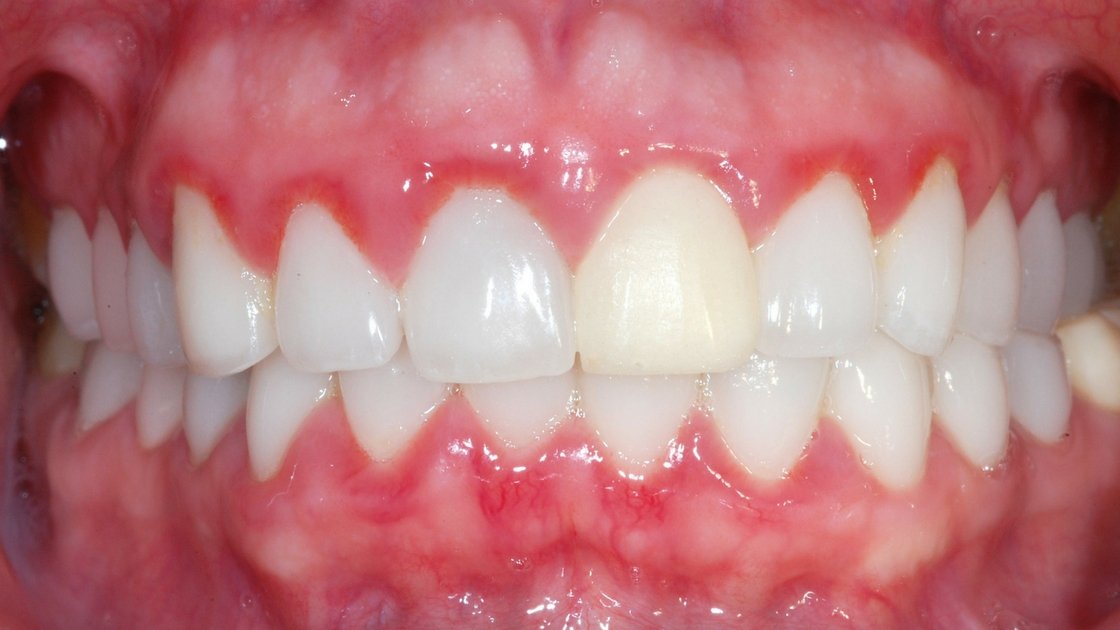Causes of Bleeding Gums
Gums may bleed during brushing for a number of reasons. One of the most common reasons for bleeding gums is gingivitis, which is the first stage of gum disease. In this stage, the gums become inflamed due to bacteria and plaque buildup in the mouth. More advanced stages of gum disease can also cause the gums to bleed. Other possible causes of bleeding gums include the following:
- Vitamin C and K deficiencies
- Hormonal changes
- Infections
- Leukemia
- Brushing too hard
Symptoms of Gum Disease
Gum disease and other gum ailments may be hard to notice right away, so be on the lookout for these telling symptoms:
- Swollen, tender, or red gums
- Persistent bad breath
- Bad taste in the mouth
- Loose teeth
- Pus around the teeth and gums
- Blood in saliva
- Bleeding while brushing your teeth, eating rough food, or spitting
Treating Bleeding Gums
If you notice any of the above symptoms, schedule an appointment with your dentist. They can help discover the cause of the problem and work with you to create a treatment plan. Your dentist may recommend a professional cleaning, scaling, or surgery depending on the severity of the problem. In addition to dental treatments, home remedies can help your gums recover more quickly.
A Well-Balanced Diet
Eating a well-balanced, healthy diet is an important part of overall oral health. Focus on whole foods, like fruits, vegetables, and whole grains, to give your body the nutrients it needs. A diet full of sugary food doesn’t provide the gums with the nutrients they need to stay healthy.
Proper Oral Care
Probably the most important part of stopping bleeding gums, a proper dental care routine is crucial for overall oral health. This means brushing your teeth at least twice a day for two minutes each, flossing once a day, and visiting your dentist twice a year. Brushing gently and using a toothbrush with soft bristles can also help your gums heal since brushing too hard can damage the gums.
Relax
High stress levels because you’re always on the go can contribute to bleeding gums. Stress increases inflammation, making gums more likely to bleed. It also lowers the functionality of your immune system so your body has a harder time fighting infections and healing. High stress levels also make you less likely to take care of yourself. If you’re up against a deadline, you might skip brushing or flossing your teeth or choose to grab fast food rather than eating a balanced meal. Try to lower your stress levels by learning to say no and stopping to take a few deep breaths when you feel overwhelmed.
No Smoking
Smoking is bad for your health, including your oral health. It increases your risk of developing gum disease and makes it harder to treat. The toxins found in tobacco smoke prevent your gums from getting needed nutrients, and can contribute to inflammation. It’s hard to quit smoking, but it’s one of the best things you can do for your oral health.
Stop Sharing
Bleeding gums and gum disease are contagious. Your risk of developing gum disease increases if your partner has a lot of bacteria in their mouth. Limit your exposure by not sharing items that contact another person’s mouth, including toothbrushes, water glasses, and utensils.
Foods to Promote Healthy Gums
Adding certain foods to your diet can help stop bleeding gums and lead to improved gum health. These gum-friendly foods include the following:
- Citrus fruit – A vitamin C deficiency can cause bleeding gums, so eating foods high in vitamin C can help stop the problem. Lemons, oranges, and other citrus fruits along with vegetables, particularly cabbage and broccoli, are high in vitamin C.
- Milk – Milk provides calcium, which helps strengthen teeth and gums.
- Raw vegetables – Chewing on raw vegetables helps clean your teeth and promotes blood circulation in the gums.
- Cranberry and wheatgrass juice – These juices can help provide relief if you’re suffering from bleeding gums. Cranberry juice can also help remove bacteria from the gums, thanks to its antibacterial properties.
- Cloves – Beneficial for treating a number of dental problems, including bleeding gums. Slowly chew cloves or rub clove oil on your gums.
- Sage and peppermint oil – Use sage and peppermint oil to brush your teeth for a refreshing and clean mouth.
- Calendula and chamomile tea – Get relief from bleeding gums with a soothing hot cup of tea prepared with the leaves of calendula and chamomile.
Salt Water Rinse
Salt does wonders for your oral health. Boost your home treatment of bleeding gums by gargling or swishing with a lukewarm salt water solution after brushing your teeth. Repeat two to three times per day as needed.
Avoid Fatty Foods
Fatty, heavy, and spicy diets contain foods more likely to get stuck in teeth cavities, providing food for harmful bacteria. This can increase your risk of bleeding gums and gingivitis. Avoiding fatty foods when possible helps control the problem.
Bleeding gums are often a sign of an underlying problem, but with proper oral care and home remedies you can often stop the bleeding quickly and help your gums return to a healthy state.


